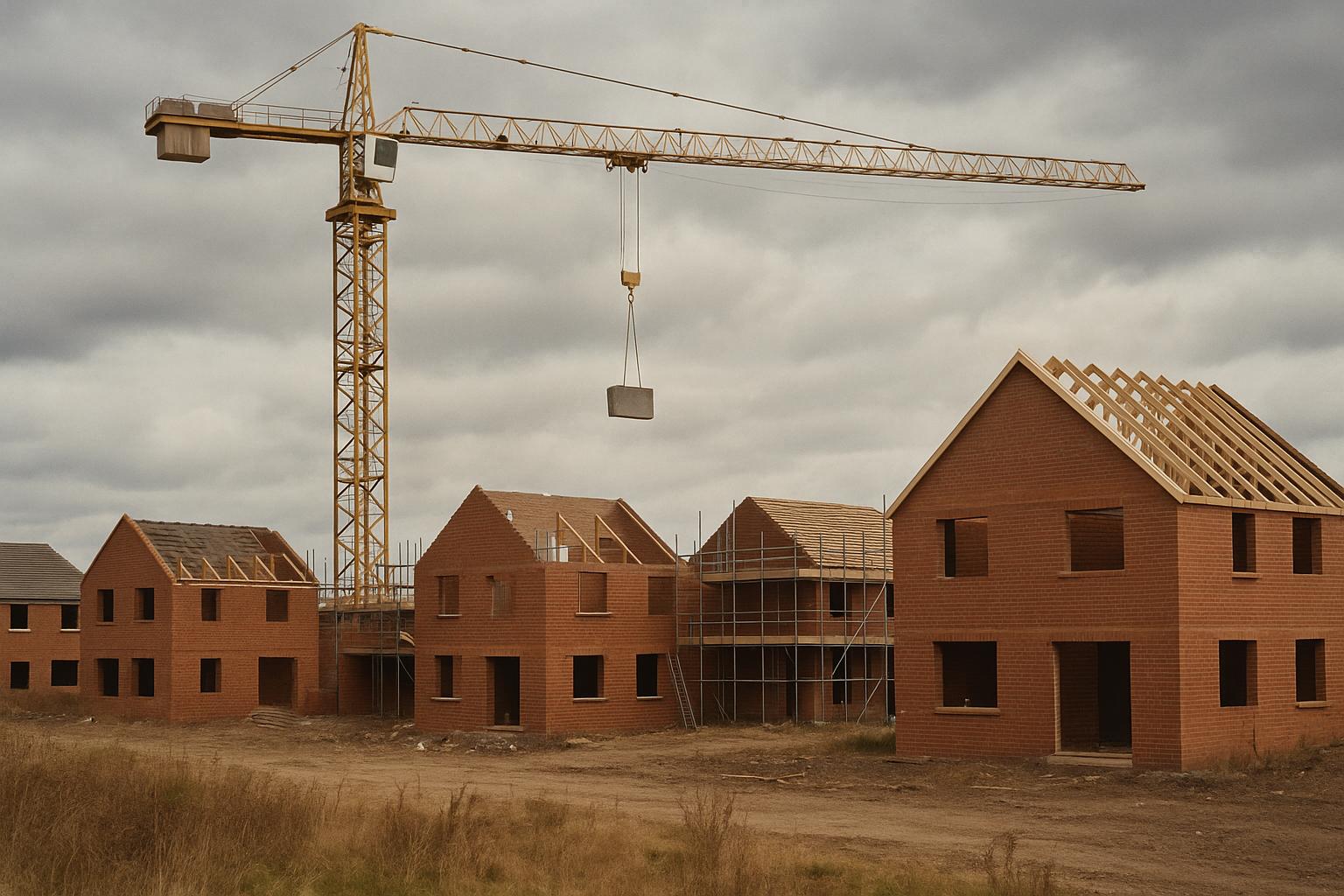A new report from the cross-party Housing, Communities and Local Government (HCLG) Committee has called for urgent reforms to the UK's system of land value capture, highlighting its failure to maximise funding for local communities. Land value capture is a public finance tool that extracts contributions from developers, leveraging the increase in land value after planning permission is granted, to fund essential community infrastructure such as GP surgeries, schools, and affordable housing.
The Committee expressed serious concerns about the Government’s delayed Long-Term Housing Strategy and its ability to meet the ambitious target of building 1.5 million new homes within the current Parliament. The report particularly criticises proposals to reduce London’s affordable housing target, stressing that a significant portion of new homes must remain affordable to local residents. It urges the Government to provide clear evidence demonstrating how any changes to affordable housing targets would actually increase the number of affordable units. The Committee also recommended introducing a clawback mechanism to reclaim profits from developers who exceed pre-agreed profit benchmarks, ensuring fairly distributed gains.
Regarding the Government’s New Towns programme, the report points out a lack of clarity on the funding sources for the necessary public and private investment. It calls on the Chancellor to allocate new resources in the upcoming Budget to establish development corporations capable of commencing land acquisition at initial New Town sites without delay, targeting spring 2026. The Committee also flagged concerns over the premature release of detailed maps for 12 potential New Town locations without a planning policy in place to guard against speculative land profiteering, which risks undermining these strategic development plans.
The report calls for comprehensive reforms to both Section 106 agreements and the Community Infrastructure Levy (CIL) to ensure developers contribute fairly towards local infrastructure and affordable housing, particularly emphasising homes for Social Rent. Other key recommendations include introducing standardised clauses for Section 106 negotiations to reduce legal complexities, reinstating funded Level 7 planning apprenticeships for students aged over 21, establishing a statutory dispute resolution mechanism to resolve deadlocks between local authorities and developers fairly, and updating land value data, which has not been refreshed since August 2020. The Committee also suggests mandating that new development corporations prioritise Social Rent homes within the 40% affordable housing requirement set for New Towns.
This report builds on the Committee's inquiry launched earlier in 2025, which examined the effectiveness of current land value capture methods such as CIL and Section 106 agreements, and explored alternative mechanisms for ensuring developer contributions towards affordable housing and infrastructure. Public evidence sessions held in July included questioning of Housing Minister Matthew Pennycook and government officials, scrutinising how land value capture reforms could complement the broader planning reform agenda.
Significantly, these recommendations come amid ongoing government reforms to Compulsory Purchase Orders (CPOs), which since April 2024 have been adjusted to allow councils to acquire land for development without paying inflated 'hope value' compensation. These changes aim to lower costs and enable councils to build more affordable and social homes, unlocking sites otherwise stalled by land price speculation. Similarly, December 2024 planning reforms enable local authorities and public bodies to acquire vacant and derelict land more readily, further supporting the target of 1.5 million new homes and infrastructure investments.
Despite these reforms to land acquisition powers designed to facilitate more affordable housing, the HCLG Committee underscores the need for comprehensive reform in developer levy mechanisms to align contributions with infrastructure and affordable housing needs. Chair Florence Eshalomi MP emphasised the necessity of homes that are genuinely affordable and the importance of developers making fair contributions towards the infrastructure communities expect in high-quality new developments. She called on the Government to produce its long-delayed Long-Term Housing Strategy promptly, to provide an overarching plan for housing supply and infrastructure development that matches the scale of the 1.5 million homes target.
In summary, the Committee’s report highlights a multifaceted housing challenge requiring reforms not only in land acquisition and planning but in ensuring the financial contributions from development projects are optimised for public benefit. If the Government acts on these recommendations, it could help deliver more affordable homes and better community facilities, while reducing the risks of land speculation and ensuring value uplift benefits local people.
📌 Reference Map:
- Paragraph 1 – [1] Infrastructure Now, [5] Parliament.uk
- Paragraph 2 – [1] Infrastructure Now, [5] Parliament.uk
- Paragraph 3 – [1] Infrastructure Now, [5] Parliament.uk
- Paragraph 4 – [1] Infrastructure Now, [5] Parliament.uk
- Paragraph 5 – [2] Parliament.uk, [6] Parliament.uk
- Paragraph 6 – [3] GOV.UK, [4] GOV.UK
- Paragraph 7 – [1] Infrastructure Now, [5] Parliament.uk
- Paragraph 8 – [1] Infrastructure Now, [5] Parliament.uk
Source: Noah Wire Services
